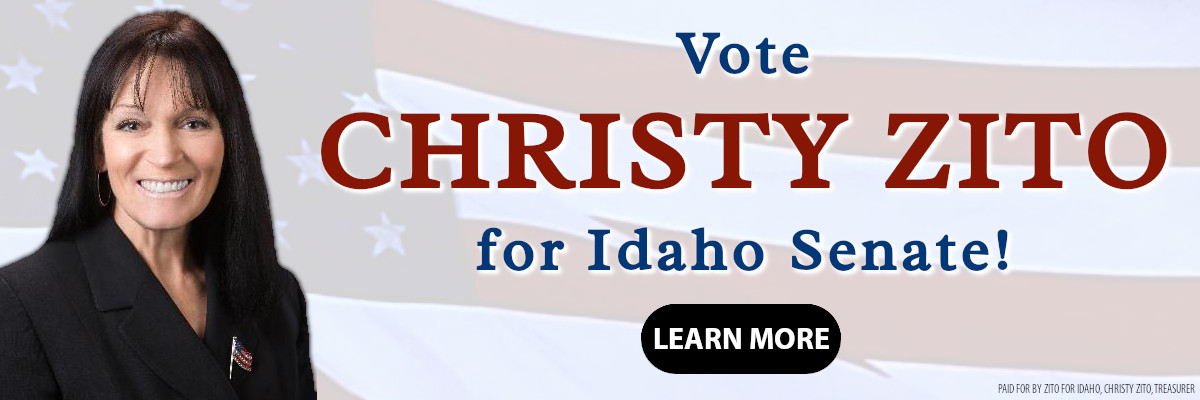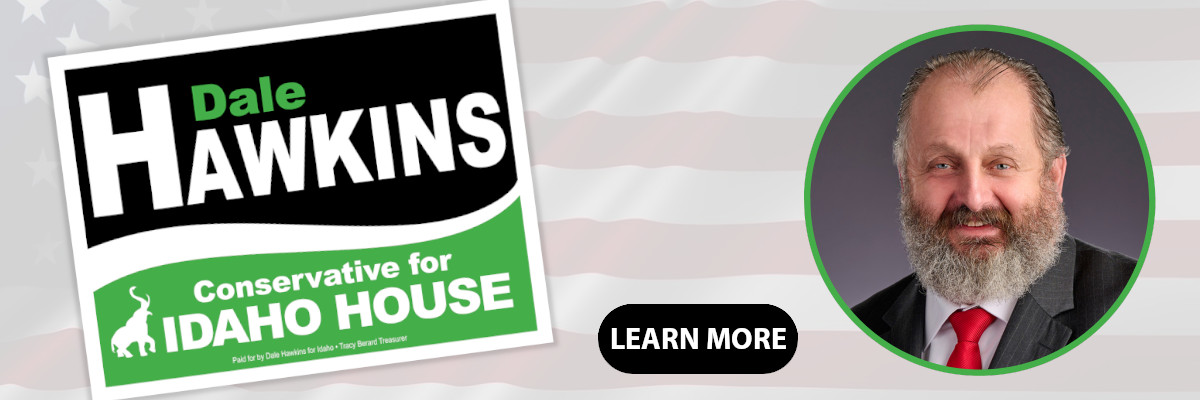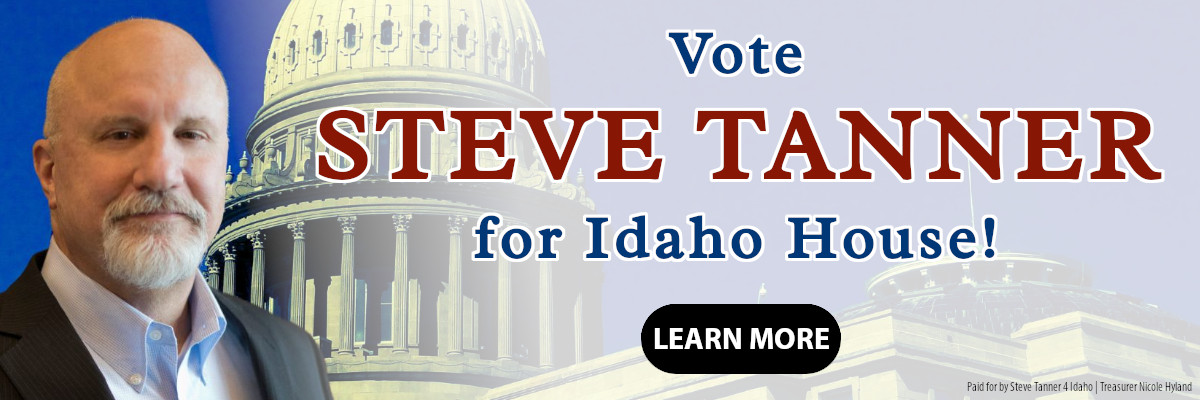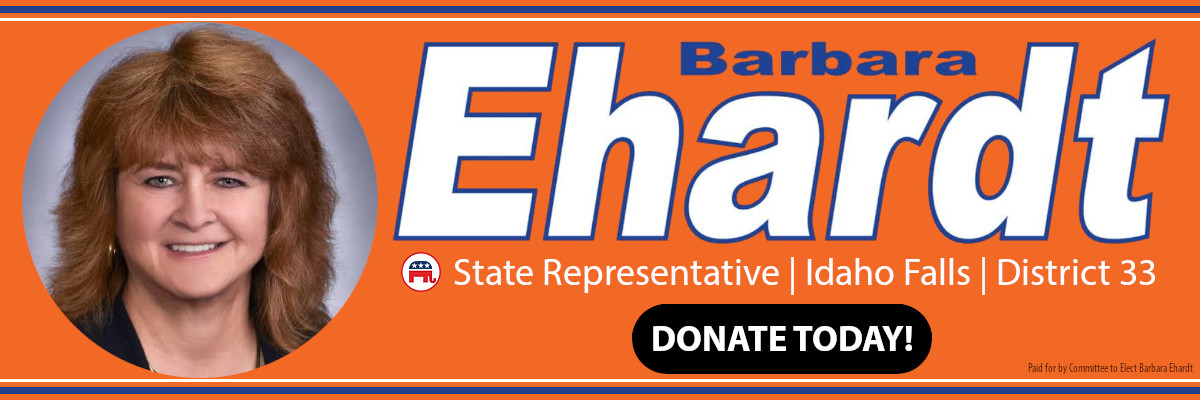
By What Authority is The Sheriff the (CLEO) Chief Law Enforcement Officer of the County? Part 2 of 3
By Doug Traubel • April 21, 2024By What Authority is The Sheriff the (CLEO) Chief Law Enforcement Officer of the County? Part 1 of this series can be found here.
By What Authority is The Sheriff the (CLEO) Chief Law Enforcement Officer of the County? Part 2:
Excerpt from Doug Traubel’s Book: RED BADGE A Veteran Peace Officer’s Commentary on The Marxist Subversion of American Law Enforcement & Culture
OFFICE OF SHERIFF
When you think of the Office of Sheriff, you may not realize how uniquely suited it is to defend individual liberty and help restore state power. The Sheriff is truly unique; one of a kind, unlike anyone else. The Sheriff is the only elected peace officer in the country.
The Sheriff does not answer to a bureaucrat in Washington DC, nor to the president, nor a judge, nor county commissioners. The Sheriff answers to his boss: The People, and has by virtue of his oath the relative autonomy to exercise some moral agency over how laws are enforced.
Sheriffs are constitutional officers in most states that have the office (there are no sheriffs in Alaska, Hawaii, and Connecticut). By design the Sheriff is elected and close to the people, chosen to protect them from criminals of all stripes, including overreaching federal and state government. The Sheriff is: The Peoples’ Guardian.
In Mack/Printz v. United States, 521 U.S. 898 (1997) the US Supreme Court reaffirmed the Sheriff is the chief law enforcement officer (CLEO) in the county and in this country.
This begs the question: Why do we so seldom see Sheriffs assert their authority against federal overreach or challenge federal abdication of delegated duty like securing the border?
Answer: The Office of Sheriff has been compromised by ignorance and by dependence on federal money, mostly in the form of grants and gifts.
The good news: There is a movement to restore the constitutional Sheriff. Its aim is to remove the influences that compromise the office and replace it with conviction to the oath of office.
Supporting this movement is the CSPOA, (Constitutional Sheriffs’ & Peace Officers’ Association). Their mission: To equip Sheriffs, peace officers and public officials with the necessary information and public support to carry out their duties in accordance with their oaths of office.
There are about 3,100 Sheriffs in the United States. Of these, 479 are members of the CSPOA. In addition, there are county commissioners and other officials that have joined and are backing their Sheriffs. It would seem these 479 plus elected officials have asked an important question:
Of what value is an oath when the person who takes it yields to the very forces it was intended to withstand?
So, what does it look like when Sheriffs are led by a conviction to their oath?
• In Wyoming, Sheriffs require that Feds check in before making arrests, serving papers, or confiscating property. This policy came about after INS (now called ICE) raided the Casteneda family’s home. The problem: The Castenedas were American citizens! This Wyoming Sheriffs’ policy will save lives and protect rights by providing much-needed oversight of federal actions in the states.
• Other examples of Sheriffs standing up: In New York and Colorado Sheriffs refuse to enforce state gun control laws that are unconstitutional on their face.
• The New Mexico Sheriffs’ Association threatened to arrest feds who move to confiscate guns.
• Sheriff Johnny Brown of Ellis County, Texas said he would resist any effort by the federal government to confiscate firearms in his county.
• Sheriff Brad Rogers of Elkhart, Indiana told the FDA he would arrest their agents for trespass if they entered an Amish farmer’s land to “inspect” without a search warrant. The feds threatened to arrest the Sheriff. He did not flinch, but the feds slipped away dropping the issue.
• Sheriff Joe Baca in Serra County, California told his county commissioners he would not enforce BLM road closures in the national forest. Sheriff Baca understands that Sheriffs cannot be pressed into service to enforce federal regulations.
• Sheriff Gil Gilbertson of Josephine, Oregon told the U.S. Forest Service and BLM he would access any closed road he deems necessary to perform his many and varied duties as the chief law enforcement officer in the county and furthermore, he would not recognize any road closures that are not coordinated through him and articulated with sound reasoning.
Sheriffs are standing up! Momentum is building to defend states’ powers and individual liberty.
Much of the west is deemed “federal land.” How does this affect the Sheriff’s authority to interpose his office between federal overreach and The Peoples’ rights on public lands?
I will answer this by sharing a summary of an argument being made by Sheriff Gilbertson whose county is 68% “federal land.” The entire argument is titled, “Unraveling federal jurisdiction within a state” and can be found on the Web.
Sheriff Gilbertson starts off with the fact that it is well established that the Sheriff is the chief law enforcement officer (CLEO) in the county. This he says includes on lands managed by the federal government, notwithstanding areas of exclusive control like military bases, post offices and the like mentioned in the Constitution under Article I, Section 8.
Furthermore, according to the Inventory Report on Jurisdictional Status of Federal Areas within the States (June 30, 1962), commonly referred to as the “1962 Eisenhower Report” Sheriff Gilbertson points out that there are four categories of jurisdiction over federal lands.
Josephine County, falls under Category 4: “Proprietorial Jurisdiction.” This means that the state has all authority. A county is a subdivision of the state; each with its own the Chief Law Enforcement Officer (CLEO) ― the elected Sheriff. The federal government has some right or title over an area, but no measure of the state’s authority. The federal government operates in a governmental rather than a proprietary capacity.
In addition, Sheriff Gilbertson points out there are federal court cases that reject the empowering readings of the Commerce Clause that brought us to the point of a lording, armed, administrative state.
I will add this includes even Chief Justice Roberts’ unpopular opinion on the individual mandate of the Affordable Care Act where interestingly he too rejected the Commerce Clause as the expected authoritative source that the Supreme Court would cite.
Sheriff Gilbertson and other Sheriffs and scholars like Utah’s Ken Ivory are making sound, well-researched arguments that substantively rebuke federal overreach and their unconstitutional hold on “federal land.” These arguments are built on organic law, the Constitution, historical documents and interestingly, even the federal court’s “case law” when it is juxtaposed to their own bureaucratic regulations (I am amused by the irony of one form of pretended legislation challenging another: case law vs. regulations).
Using case law to argue what is right and what is “law” is somewhat counterproductive because it perpetuates the problem by legitimizing the unconstitutional practice of judicial review covered early in this book. However, when citing case law for the purpose of illuminating the contradictions of the federal government and how far it has veered off course it can be instructive albeit not authoritative.
One such source is a congressional report dated October 23, 2000. A land dispute between the USFS and Elko County, Nevada was resolved in part by referring to a 1907 Supreme Court case: Kansas v. Colorado, where it was ruled that the U.S. Forest Service had no general grant of law enforcement authority within a
sovereign state unless designated as such by state authority.
Another source is Caha v. United States, 152 U.S. 211, 215 (1894):
“…within any state of this Union the preservation of peace and the protection of person and property are functions of the state government, and are not part of the primary duty, at least, of the nation.”
Following this argument, who is the Chief Law Enforcement Officer that can grant or revoke such police power to the feds? Answer: The County Sheriff.
This is a snapshot of a more compelling argument that Sheriff Gilbertson and others in the CSPOA are making that the feds have no constitutional basis of authority for law enforcement powers in the county.
The federal government’s response has been silent for the most part, but they are behind efforts to eliminate the Office of Sheriff or diminish its power from state to state. One such effort is taking place in Sussex County, Delaware where Sheriff Jeff Christopher is fighting for his Office against efforts begun by Joe Biden’s late son who was the state attorney general.
It seems the feds find themselves in the untenable position of defending its practice of overreach against sobering constitutional realities and their own corpus of historical court precedents that favor dual sovereignty over federal tyranny.
To their dismay, Constitutional Sheriffs are not going away, but are growing more numerous and bolder in standing by their oath!
This Constitution Corner column was submitted by Doug Traubel. This column does not necessarily reflect the views and opinions of those at the Idaho Dispatch.
Tags: Chief Law Enforcement Officer, CLEO, Idaho Code, Idaho Constitution, Mack-Printz V US, Oath, oath in action, SCOTUS, Sheriff

















Again, Another great article part 2. Hows the state of Idaho sheriffs ranking? I know in our area our sheriff is all political. The county prosecutors think they have their own private law enforcement. These articles should be sent to all Idaho law enforcement along to all the county commissioners, and county prosecutors. I would love to see these articles in every paper in the state. When the sheriff is told to stand down by county attorneys should be a wake up call Idaho. Even a investigation by the state A.G.
I’m glad the Dispatch is running these articles. The fight is in the judiciary and the county sheriff is a key actor in this contest. Thank you.
EXCELLENT education !
There are Sheriffs up for re/election very soon. Ask them about this and observe their responses and most especially review their history and how they handled themselves regards to protecting our rights ………
Agree! Excellent article. Excellent history. And very important to ask Sheriff candidates the tough questions. Most important is to assess what incumbents or other LEOs actually have DONE (not just what they SAY they will do) to protect our rights.
Ada County needs Doug Traubel as its next Sheriff! Mr. Traubel truly understands that his oath is to “We the People,” not “We the Federal or County Government.”
Mr. Traubel also is 100% right about the insidious effects of federal (and state) funding and grants that drive all who receive or pay for them into servitude or tyranny. Law enforcement, public health, public education, and so many other bureaucracies and “public private partnerships” have become thoroughly indebted by funding largesse. So-called “free money” corrupts everything and everyone.
Please spread the good word about Doug Traubel in Ada Country so citizens can be safe and have a Sheriff who will stand up to all the bad guys of every stripe!
Citizens of Ada County should not be held hostage or brainwashed by propaganda, false statements, and ad hominem attacks against the highly experienced and scrupulously honest Mr. Traubel from mainstream and social media, mailers, ads, signs, special-interest groups, etc.
Everyone, before voting, please do your own research, meet the candidates, ask them hard questions, explore their integrity, and look at their records and actions (not just their party affiliation or what they say they will do). In fair elections, apathetic, lazy, uninformed, or absent voters are among the most dangerous people in America!
P.S. Although Mr. Traubel’s race for Sheriff comes up during the general election on November 5, the key elections for legislators in Idaho are the primaries on May 21, less than a month from now. So PLEASE do your homework, then vote on May 21.
Where’s my Doug Traubel for Sheriff sign to put in my front yard!!??
Does the sheriff have the authority to arrest biden for treason?
Doug Taubel does an excellent job of explaining what a constitutional sheriff is as the CLEO in the county and what authority elected sheriffs have as the only elected law enforcement position in the country. The sheriff is the most important race to be informed about and vote for in your county. Vetting candidates, particularly on their understanding of their authority with regard to Federal agencies and agents is critical right now. Note, all of the examples provided of those sheriffs or associations standing in the gap are very outdated. There was momentum for this effort back win 2010-2013 or so and then it sort of faded until 2020-2022; and those sheriffs mentioned for the most part are no longer in office. The establishment and propaganda media realize more than ever the power of constitutional sheriffs and are on a mission to discredit the movement. KrisAnne Hall is the one who is beating the drum the most by holding regular sheriff and LEO training events across the country. krisannehall.com Her award winning documentary NC2: The Sheriff is excellent and current.